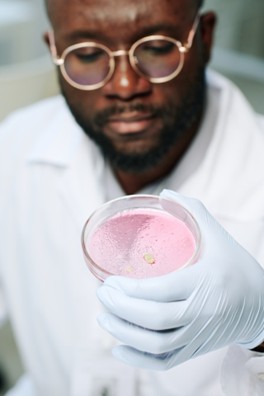
Over the past decade, the biotech landscape has transformed dramatically. Breakthroughs like CRISPR gene editing, mRNA vaccine technology, AI-driven drug discovery, and cutting-edge biomanufacturing have redefined how we tackle disease, innovate treatments, and confront global health issues. For professionals in this rapidly advancing field, the pace of innovation brings unparalleled opportunities, but also a new level of pressure to stay ahead.
Whether you’re a research scientist, a regulatory affairs specialist, or a bioprocess engineer, remaining competitive requires more than technical competence. You must also evolve your mindset, expand your skillset, and continuously grow your professional network to align with the latest trends and technologies.
Fortunately, biotech recruiting agencies are increasingly playing a key role in helping professionals stay aligned with industry shifts by connecting them with roles that match both their expertise and their future growth potential.
Biotech is inherently interdisciplinary and innovation-driven. Unlike more static industries, it’s influenced by major leaps in computing, biology, and engineering simultaneously. The result? Constant transformation.
Key forces accelerating change include:
AI and Machine Learning: Once a novelty, AI is now used in everything from protein structure prediction (AlphaFold) to clinical trial optimization and digital pathology.
Next-Generation Sequencing (NGS): The cost of sequencing has dropped dramatically, opening the floodgates for precision medicine and population-level genomics.
Cell and Gene Therapies: CAR-T cell therapy, gene silencing, and regenerative medicine are redefining how we approach previously untreatable diseases.
Automated Biomanufacturing: Smart bioreactors, robotics, and continuous manufacturing are replacing manual, batch-based processes.
mRNA Technology: The success of COVID-19 vaccines has accelerated investment in mRNA platforms for everything from cancer to rare diseases.
While these innovations open new doors, they also shift the skill sets and tools that professionals must master to stay competitive.
The first step to adapting is recognizing that your degree or certification is just the beginning. In biotech, education is ongoing.
Adopt these principles:
Stay curious: Treat every new development as a learning opportunity, not a threat.
Be flexible: The job you’re doing today may look very different five years from now.
Own your development: Waiting for your employer to train you may put you behind. Be proactive.
Professionals who view change as an asset rather than an obstacle are better positioned to lead and innovate.
You don’t need to master every new tool or platform, but understanding the technological landscape helps you stay fluent in conversations, collaborations, and decision-making.
Key areas to develop:
Biotech is now a data-heavy industry. Whether you’re analyzing lab results, genomics, or real-world evidence, fluency in data interpretation is critical.
Modern labs use electronic lab notebooks (ELNs), lab automation, and digital sample tracking. Get comfortable with:

You don’t need to be a coder, but understanding how AI impacts your field - whether it’s drug screening or regulatory submissions - will keep you relevant.
For those in clinical development or regulatory affairs, tech literacy is increasingly important.
How do you acquire the new skills you need while still working full time?
Some practical options:
Online courses: Platforms like Coursera, edX, and FutureLearn offer biotech-focused courses from top universities. Popular topics include bioinformatics, AI in life sciences, and clinical trial design.
Certifications: Consider credentials in areas like regulatory affairs (RAC), project management (PMP), or Good Manufacturing Practice (GMP).
Conferences and webinars: Attend industry events such as BIO International, AAPS, or DIA. Many now offer hybrid or virtual formats.
Internal cross-training: Ask to shadow a colleague in a different function—like manufacturing or regulatory—to broaden your understanding of the full product lifecycle.
Remember: Upskilling doesn’t have to mean formal education—it can be as simple as staying current with scientific literature or tech journals.
As technologies evolve, so do career paths. Many professionals find their roles shifting in unexpected but exciting directions.
Examples of career evolution in biotech include:
If your role is becoming obsolete or overly manual, look for ways to pivot your experience into an adjacent, tech-enabled function.
In a changing industry, your network becomes one of your most valuable tools for staying informed and opening doors to new opportunities.
How to stay connected:
Follow thought leaders, startups, and tech innovators in your niche
Ask colleagues about how their roles are changing. Peer insight is often more actionable than reading about trends in isolation.
While personal responsibility is key, biotech companies must also step up to support workforce development. Organizations that invest in learning and adaptability are more likely to retain talent and remain competitive.
Employers can help by:
The pace of change in biotechnology is not slowing down - it’s accelerating. From automation to artificial intelligence, the technologies shaping the future of health care, agriculture, and biomanufacturing will continue to evolve rapidly.
Adapting to these shifts is no longer optional. Professionals who embrace change, continually invest in their learning, and actively reshape their roles will thrive in tomorrow’s biotech landscape. Whether you're developing the next breakthrough therapy or improving supply chain systems, your willingness to evolve alongside the science will define your long-term success.
Now is the time to assess your current skillset, explore emerging technologies, and lean into the future of biotech careers. Innovation begins with you.